- Ghent University
- Free University Brussels
- Free University Brussels & Ghent University
- Catholic University Leuven
Emilia Mataix Ferrándiz (SDEP Fellow Ghent University, 15 January – 15 April 2021)
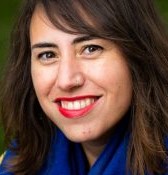 |
Dr. Mataix Ferrándiz obtained a PhD in Roman law at the University of Alicante and Facolta di giurisprudenza Palermo in 2014, with a thesis on The edict de incendio ruina naufragio rate nave expugnata (D. 47, 9, 1). Criminal liability for shipwrecking. In 2018 she obtained a second PhD in Archaeology at the Universities of Southampton and Lyon 2 La Lumiere with a thesis on Explaining the commerce of Roman Mediterranean Ports: the evidence from scripta commercii and law (as part of the Portus limen project (http://portuslimen.eu/).Her research interests are on Roman law and especially on its cmmercial and maritime focus. Her work is also devoted to examining the ways in which the material of inscribed artefacts provides information regarding their use as objects of communication. She connects the materiality of epigraphy of merchandise with the background of Roman law, by shifting the focus from traditional linguistic analysis to the means by which inscribed texts were created, shaped, and used as commercial tools in the different regions of the Mediterranean. After her work on the Portus limen project she was awarded a postdoctoral fellowship at the Helsinki Collegium for advanced studies (2018-2020) to develop a project entitled materialising and tracing roman commercial sea law (2nd cent BC-3rd cent AD). Her aim there is to understand legal procedures from an anthropological point of view and think about what different parties in trade aim to achieve by using certain legal mechanisms or practices. She was hired as collaborator for the Center of Excellence Eurostorie (University of Helsinki) on the subproject “Law and the uses of the past” (https://www.helsinki.fi/en/researchgroups/law-identity-and-the-european-narratives). |
John Fabiano (SDEP Fellow Ghent University, 1 April – 31 May 2021 (postponed because of COVID-19))
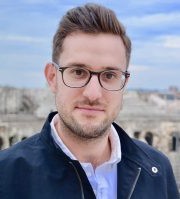 |
John Fabiano holds a PhD in Classics from the University of Toronto and specializes in social and economic history of the Roman world, particularly of the Later Roman Empire. His current research focuses on the interaction between state institutions and non-elite populations in urban contexts. While his work primarily engages with epigraphic and legal texts, the nature of his research is such that it meets with broader interests in Roman historiography, historical demography, and environmental history. Dr. Fabiano has also participated in archaeological projects in Pompeii and Portus, spent time as a fellow at the Kommisson für Alte Geschichte und Epigraphik in Munich, and conducted research at the British School at Rome. More recently, he has become interested in the application of technologies to the study of epigraphy. |
John Creighton (SDEP Fellow Ghent University, 16 October – 15 December 2021)
 |
Dr. John Creighton’s research centres upon Later Iron Age and Early Roman NW Europe. His books include: ‘Silchester: changing visions of a Roman Town’ (2016); ‘Britannia: the creation of a Roman Province’ (2005); ‘Coins & Power in Late Iron Age Britain’ (2000), Celti: the archaeology of a Hispano-Roman Town in Baetica (with Simon Keay and Jose Remesal, 2001), and he has co-edited the volume Roman Germany: Studies in Cultural Interaction (1999).
His fieldwork has included work in Britain, France, Germany and Spain. Including projects with Colin Haselgrove and Tom Moore, examining the landscape in the vicinity of the Iron Age oppidum of Mont Beuvray (Bibract) and the Roman town of Autun in Burgundy; and also a large fieldsurvey and digitisation project of the Roman town and hinterland of Silchester (Hampshire) leading to a major reinterpretation and synthesis of the site. John is currently engaged on a Leverhulme Trust Major Research Fellowship (2020-22) ‘Money and the rise of inequality and the market in northern Europe‘ which sees him returning to writing about the nature of coinage and society in the Iron Age and Roman period. He was Director the Society of Antiquaries of London (2010-16) and has been a trustee of the Royal Archaeological Institute and the Society for the Promotion of Roman Studies, and has sat on the grant awarding committees of all those organisations. |
Cristina Corsi (SDEP Fellow Free University Brussels, 6 September – 13 October 2021)
 |
Cristina Corsi is professor in Archaeology at the University of Cassino in Italy. She is Marie Curie fellow and associated member at the Laboratoire d’Archéologie Médiévale et Moderne en Méditerranée (LA3M) – Maison méditerranéenne des sciences de l’homme in Aix-en-Provence. From 2007 to 2013 she has been visiting director of research at the University of Evora, in Portugal. She graduated in Archaeology at the University Sapienza of Rome and obtained a PhD in Archaeology at the University of Bologna. She also obtained the Diploma of the National Specialisation School in Archaeology at the University “Sapienza” of Rome. She got several post-doc fellowships and she has been visiting professor at several prestigious research institutions in Europe and USA. She coordinated and participated in large international projects, some of which are still running. She directed surveys and excavations in central Italy (South Etruria and Southern Latium), in the Roman towns of Mariana (Corsica, France) and Ammaia (Portugal). Her main research interests are: Mediterranean Landscape Archaeology in the long-durée, Roman and Medieval Archaeology, specifically communication networks in Antiquity and the Middle Ages. She is internationally acknowledged as specialist in Archaeological Diagnostics. She authored two volumes about road networks and infrastructures in Roman Italy and in Medieval Latium (Oxford 2000; Università della Tuscia 2012), and a volume with the presentation of archaeological excavations at the Roman town of Ammaia (Ghent 2014). A book devoted to the study of the modalities of medieval travel and the journey of Archbishop Sigeric at the dusk of the first millennium is forthcoming. She edited and co-edited proceedings of important international congresses (“Changing Landscapes. The impact of Roman town in the Western Mediterranean”, “Urban Landscape Survey in Italy and the Mediterranean”), the volume presenting the survey of Ammaia (Ghent 2012) and a book devoted to guidelines in ‘Good Practice in Archaeological Diagnostics’ (Springer 2013). She authored and co-authored more than 100 papers in international journals and peer-reviewed proceedings volumes. |
Duncan Keenan-Jones (SDEP Fellow Free University Brussels, time to determined)
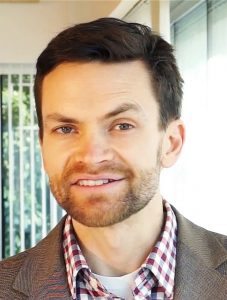 |
Duncan is Lecturer in Ancient History at the University of Queensland, Australia. His work is focused on how humans have attempted to adapt to and control their physical and cultural environment by using technology, and how we might learn from, and improve, this attempt. It combines qualitative and quantitative (i.e. proxy-based and scientific) approaches.He has current projects on the climate, flooding and water management in ancient Italy and Indigenous floodplain management in Australia’s channel country, as well as how Roman mortar developed and why it is so durable. He is an affiliate of UQ’s Centre for Policy Futures, having been a fellow there in 2020. Before taking up the position at UQ, he held postdoctoral positions at the Collegium de Lyon (an institute for advanced study, 2017-2018), on a Leverhulme-funded research project at the University of Glasgow (2014 – 2017) and as Andrew W. Mellon research associate at the University of Illinois, Urbana-Champaign (2011-2014). Duncan’s doctoral thesis (Macquarie University, 2011), investigated the creation and social and environmental impacts of a unique, regional water supply network. Before his Masters of Arts in Ancient History (Macquarie, 2006), Duncan completed an honours degree in chemical engineering. |
Colin Elliott (SDEP Fellow Free University Brussels, 2-12 November 2023)
 |
Colin Elliott is Associate Professor of History at Indiana University where he researches and teaches on economic, social and ecological connectivity in the ancient world. He is currently completing a book on the Antonine Plague (A.D. 165-190) entitled Pox Romana: The Antonine Plague and the End of the Roman Peace (under contract, Princeton). The book draws upon social science methods, quantitative data, epidemiological evidence and paleoclimatological sources to argue that the Antonine plague, despite being far less deadly than subsequent pandemics, disproportionately impacted the economic, social and cultural structures of the Roman Empire due to several factors: Rome’s dependence upon limited agricultural ‘breadbaskets’, the general prevalence of slave labor and the dominance of tributary and redistributive modes of connectivity. His first book, Economic Theory and the Roman Monetary Economy (2020, Cambridge), uses economic theory to draw counter-factual comparisons in Roman monetary history in order to offer novel interpretations of monetary events and phenomena such as the monetary injections under Augustus and Tiberius and coin debasements of the second and third centuries A.D. |
Nicolas Solonakis (SDEP Fellow Catholic University Leuven, 1 Sept. – 15 Nov. 2020)
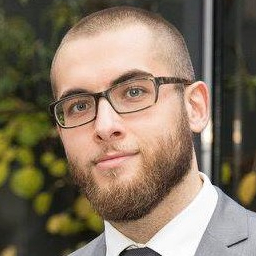 |
Nicolas studied Ancient History, Political Sciences, Archaeology and Geography at the University of Brussels (ULB), and was awarded a PhD in Ancient economic History from Ghent University. His PhD thesis investigated the grain supply systems in the Eastern Mediterranean (mostly Asia Minor and the Aegean) under the Roman Empire, involving a study of the local environment, an analysis of ancient Greek and Roman farming practices, and finally, an in-depth study of imperial, provincial and civic grain-related interventions (under the form of specific institutions, benefactions or commercial policies) via a combination of literary sources, inscriptions, papyri and archeological material. Through this analysis, he argued that governments and civic authorities played a most prominent role than private initiative in managing the urban grain supply, and that grain-supply schemes were far more sustainable than it had previously been thought. Overall, Nicolas’ research interests focus on ancient Greek and Roman agriculture, land management, and the social and economic approaches to food in preindustrial economies. He also shows a strong interest in innovative quantification methods such as probabilistic (aka ‘Monte-Carlo’) simulations which help us reassess unanswered problems in economic history. He joined the PATRIMONIVM project in September 2018 and is responsible for the Near-Eastern provinces (Syria, Judaea, Arabia, Mesopotamia) |
Lucia Collela (SDEP Fellow Catholic University Leuven, October 2021)
 |
Lucia C. Colella obtained her PhD in Roman History with a dissertation on the Town Council of Arsinoe in the 3rd century AD (University of Naples ‘Federico II’), in which she provided the first analysis of all the extant sources on the boule of this metropolis in the first century of its existence and a prosopographical list of the known bouleutai. She has worked on Greek and Latin papyri, both published and unpublished, especially on documents from the Roman era. Her research interests involve administration and everyday life in Roman Egypt. Since September 2019 she has been a postdoctoral fellow in the project PLATINUM (ERC-StG 2014 636983), within which she has studied Latin and Graeco-Latin legal documents from Roman Egypt, with a focus on Roman wills. |
David Lewis (SDEP Fellow Catholic University Leuven, 14 June – 26 July 2022)
 |
David Lewis comes from the Ards Peninsula in Northern Ireland, and trained at the University of Durham, recieving his PhD in 2012 with a thesis on Greek slavery in its wider Eastern Mediterranean context; an expanded and reworked version of this was published by Oxford University Press in 2018, Greek Slave Systems in their Eastern Mediterranean Context, c. 800-146 BC. His research interests mainly concern the history of labour, and he is co-editor (with Edward M. Harris and Mark Woolmer) of The Ancient Greek Economy: Markets, Households and City-States (Cambridge University Press, 2016), and with Edmund Steward and Edward M. Harris of Skilled Labour and Professionalism in Ancient Greece and Rome (Cambridge University Press, 2020), as well as the author of various articles on ancient Greek economy (and some on ancient Greek law). After graduating from Durham, he held two postdoctoral fellowships at the University of Edinburgh (2013-2016) before taking up a lectureship at the University of Nottingham in 2016. He returned to Edinburgh in 2018 to take up his current position as lecturer in Greek history and culture. His next monograph project will explore the organisation of labour in Athens-Piraeus during the Classical period. |
Nicolas Purcell (SDEP Fellow Ghent University, 20 April – 18 May 2022)
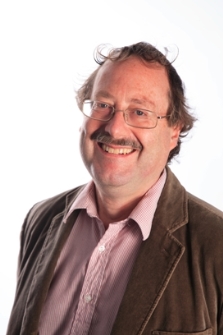 |
Nicolas Purcell is Camden Professor. of Ancient History at the university of Oxford and fellow of Brasenose college. He is an expert on the social, cultural, and economic history of the city of Rome in antiquity, and of ancient Italy; long-term history of the Mediterranean basin. He is widely known for his monumental work (together with Peregrine Horden) The Corrupting Sea; a study of Mediterranean history (Oxford 2000). He became the 98th Sather Professor of Classical Literature at the University of California, Berkeley in 2012, lecturing on ‘Venal Histories: The Character, Limits, and Historical Importance of Buying and Selling in the Ancient World’. Currently he is working on The Kingdom of the Capitol, a monograph on the historical importance of the Capitol in ancient Rome. |
Luigi Oddo (SDEP Fellow Free University of Brussels & Ghent University, 7 Jan. – 7 March 2022)
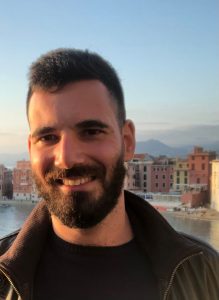 |
Luigi Oddo is a PhD candidate in Economics and Political Economy and a Research Fellow in Monetary Economics at the University of Genoa. Previously visiting PhD student at the University of Zagreb, he attended several specialization courses, among others a Summer School on long-run economic development at the London School of Economics and at Barcelona GSE on time series methods for macroeconomic analysis. He is majored in Economic Development in pre-industrial societies, covering a period form the Roman world to the early modern age. Applying quantitative approaches as VAR macro-econometrics models and Wavelet non-linear analysis, he studies the emergence of different models of economic growth in the preindustrial world. He has two ongoing research projects. In the first one, starting from the works of Angus Maddison he analyses the role of long-distance trade in the early Roman Empire, showing that Roman economy owned high level of markets integration and labour specialization to overcome the Malthusian Trap. In his second working paper, he studies the economic consequences of the Antonine Plague in Roman Egypt using a non-linear empirical approach. Results show how extra-economic measures adopted by landowners in league with roman officers and administrators, might have biased markets’ self-regulated system, preventing strong fluctuations in production and in labour market during the “Great Pestilence”. His working paper Did long-distance trade trigger Smithian growth in the Roman world? An extension of Maddison’s estimates was presented at the 61st Annual Conference of the Italian Economic Association, 20-23 October 2020. He is author of the article Pandemie e rivoluzioni: il caso della “Peste” Antonina (2020) and of the book review (actually in print) Capital, Investment and Innovation in the Roman world edit by Oxford University Press. About monetary economics he is author of the article A comparative analysis of the monetary policy transmission channels in the U.S: a wavelet-based approach (2021), published on “Applied Economics”. |
Takashi Hasegawa (SDEP Visiting Fellow Ghent University 1 April 2023 – 31 March 2025)
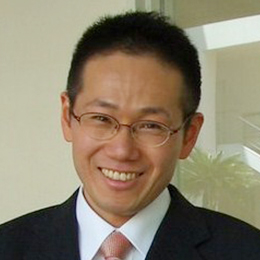 |
Takashi Hasegawa is Associate Professor at Keio University (Japan). He obtained his first MA in history at Tokyo University and his second MA in ‘Sciences Humaines Sociales’ at the Université Lumière Lyon 2. In 2015 he obtained his PhD in ‘Histoire, langues, littérature anciennes’ at the Université Bordeaux Montaigne with a thesis on ‘Les commerçants et les transporteurs dans la société des provinces gauloises et germaniques de l’Empire Romain (Ier siècle avant n. è. – IIIe siècle de n. è.)’ under supervision of prof. Jerôme France.
He will join us at the History Department at Ghent University for a two-year project studying professional groups, particularly collegia in the Gallic and Germanic provinces of the Roman Empire, using primarily epigraphic and iconographic sources. A particular focus will be on the traders honouring Nehalennia in Domburg and Colijnsplaat.
|